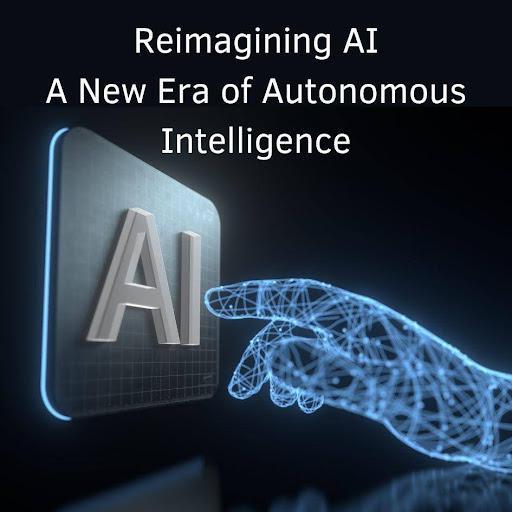
In a world increasingly defined by rapid technological evolution, the introduction of Agentic AI signals a transformative moment in artificial intelligence (AI). This innovative approach, authored by Panneer Selvam Viswanathan exemplifies a shift toward systems capable of independent decision-making and adaptability. The work opens the door to unprecedented possibilities in automation and human-AI collaboration by exploring its foundational principles, technical advancements, and future implications.
Defining the Agentic AI Paradigm
Agentic AI represents a bold leap from conventional AI. Unlike systems confined to pre-programmed instructions, Agentic AI demonstrates autonomy by perceiving environments, setting goals, and adapting to unforeseen challenges. This independence equips it to operate effectively without continuous human intervention, redefining the capabilities of intelligent systems in complex scenarios.
Innovations in Decision-Making Architecture
Central to Agentic AI’s success is its decision-making framework. These systems operate on multiple levels of abstraction, mimicking human-like cognitive processes. They can rapidly respond to immediate needs while strategically planning for long-term goals. Such dynamic flexibility ensures efficiency in environments requiring nuanced responses, from healthcare diagnostics to autonomous transportation.
Adaptive Learning at the Core
Adaptive learning mechanisms form the backbone of Agentic AI’s functionality. These systems continuously refine their behavior by blending supervised learning with reinforcement strategies. This hybrid learning architecture allows Agentic AI to generalize from past experiences, ensuring optimal performance even in novel or high-pressure conditions.
Enhancing Perception and Action
The technical architecture of Agentic AI showcases advancements in perception systems, decision-making algorithms, and execution frameworks. These systems build rich environmental models through sensor fusion and real-time data analysis. Decision layers integrate heuristic responses with deep analytical processes, translating complex insights into precise actions. The result is a level of operational precision rarely seen in existing technologies.
Broader Implications Across Sectors
Agentic AI’s applications span industries, enhancing efficiency and innovation. In healthcare, intelligent systems adapt treatments based on real-time patient data, improving outcomes. In logistics and transportation, predictive analytics optimize routes, reducing costs and environmental impact. These examples underscore the transformative potential of autonomous technologies in diverse fields.
Balancing Ethics and Innovation
As Agentic AI evolves, addressing ethical considerations becomes paramount to its responsible deployment. Ensuring transparency in decision-making processes fosters trust by allowing stakeholders to understand how these systems operate and make choices. Robust accountability mechanisms are necessary to clearly define responsibilities and mitigate risks associated with autonomous actions. Equally critical is the implementation of strategies to identify and eliminate biases, ensuring fairness and inclusivity in AI applications. Privacy concerns must be proactively addressed, with stringent safeguards to protect sensitive data and prevent misuse. By aligning technological advancements with societal values, Agentic AI can drive innovation responsibly and ethically.
Looking Ahead: The Future of Autonomy
The road ahead for Agentic AI is filled with groundbreaking opportunities that could redefine the technological landscape. Future advancements may enable seamless integration with emerging technologies like quantum computing and edge architectures, significantly enhancing computational efficiency and decision-making precision. This convergence is poised to unlock unparalleled real-time processing capabilities, allowing Agentic AI to address some of humanity’s most pressing challenges. From optimizing sustainable energy systems to driving innovations in space exploration, these advancements could revolutionize how we approach complex global issues. The synergy between Agentic AI and cutting-edge technologies holds the potential to shape a smarter, more sustainable future.
In conclusion, Panneer Selvam Viswanathan has articulated a vision of intelligent systems that transcend traditional limitations, offering a blueprint for the future of autonomous technology. This framework highlights the immense potential for innovation while emphasizing the critical role of ethical governance. As industries and researchers continue to adopt these advancements, the insights provided serve as a guiding light for navigating this transformative frontier in artificial intelligence.